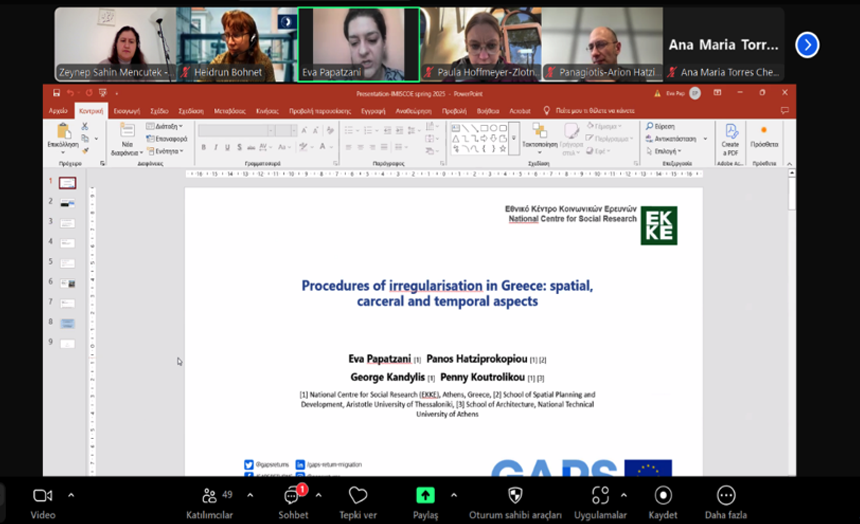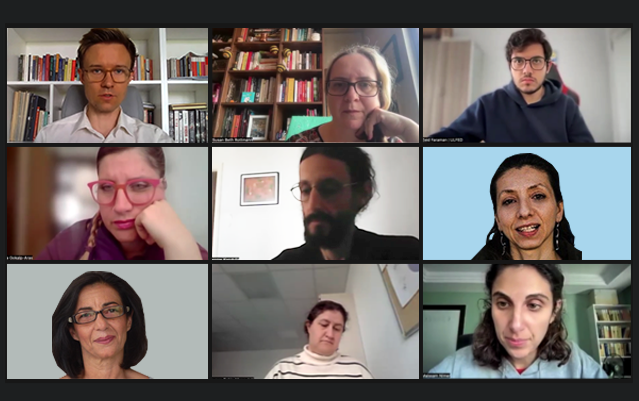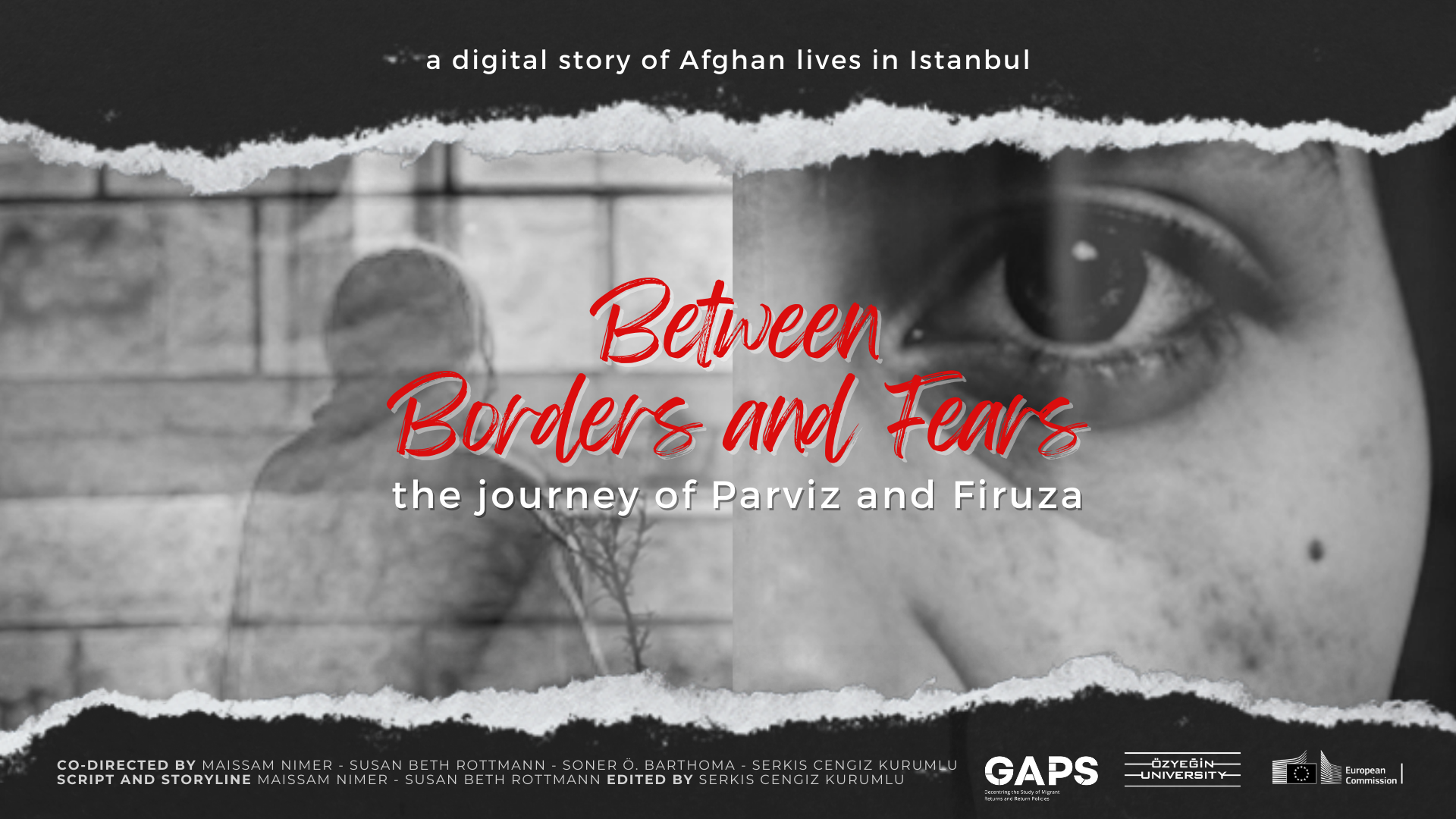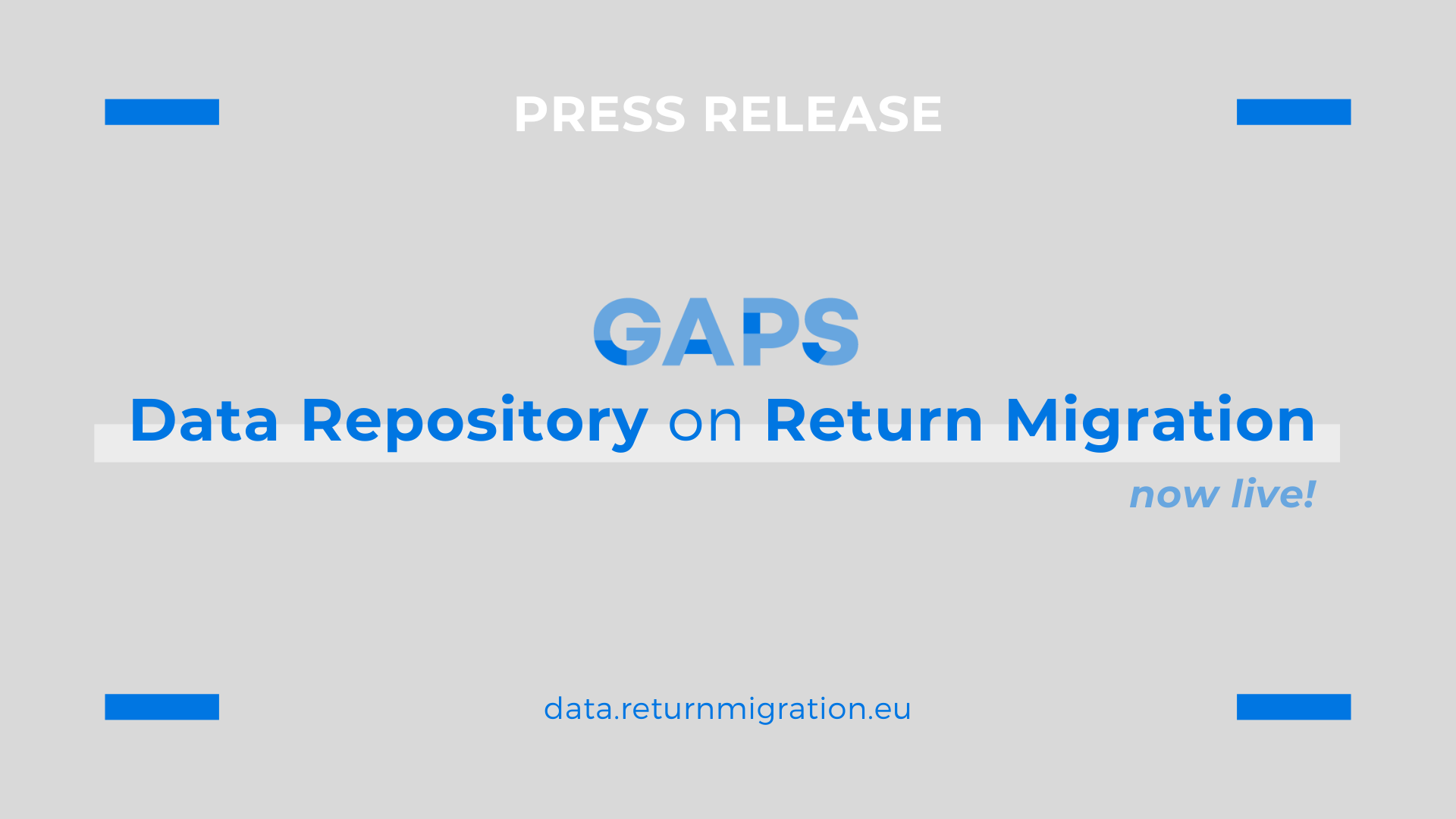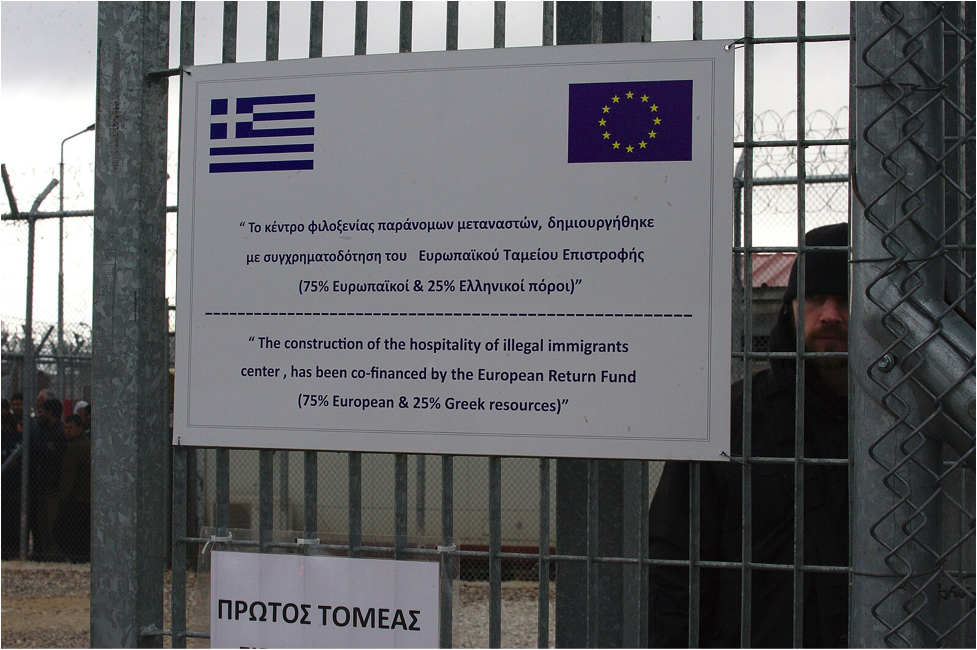At the 2025 IMISCOE Spring Conference in Krems, Austria, titled The Regularity of Irregularity: Rethinking Migration Paradigms, Horizon Europe project GAPs organized and participated (jointly with FAiR, another Horizon Europe project) panels that critically examined return policies, migration governance, and migrant agency. These two panels at the IMISCOE Spring Conference underscored the importance of critically analyzing migration governance, return policies, and migrant agency, offering valuable contributions to contemporary debates on irregular migration and return dynamics…
Read MoreOn March 21, 2025, the WP7 team, led by Susan Beth Rottmann and Maissam Nimer, held an online workshop to finalize the WP7 comparative report on migrants’ voices on return. The session brought together researchers and representatives from migrant organizations to review key findings, address remaining gaps, and shape policy recommendations. The insights from the workshop will contribute to the final WP7 deliverable—a policy brief that aligns with ongoing policy discussions on return migration…
Read MoreJoint Statement from FAiR, GAPS, MIrreM and MORE in Response to the Reference to these Four Projects in the European Commission’s Proposal for a Regulation Establishing a Common System for Returns We, the undersigned EU-funded research projects, issue this joint statement to clarify our position on the European Commission’s Proposal for a…
Read MoreOn 12 March 2025, Mateusz Krępa, an expert from the Polish team within the Horizon Europe GAPs project, was a guest on TOK FM radio to discuss the European Commission’s newly announced plans for harmonising return systems across the EU. Drawing on findings from the GAPs project, particularly from Work Package 3 (on the forced returns infrastructure in Poland and on reintegration programmes in Georgia) and…
Read MoreThe GAPs project is proud to announce the production of its first digital story, Between Borders and Fears – A Digital Story of Afghan Lives in Istanbul. This powerful documentary follows the journey of Parviz and Feruza, an Afghan couple navigating legal limbo, economic precarity, and the constant fear of deportation in Turkey. Through a compelling mix of personal testimonies, animation, and on-the-ground footage, the film highlights the structural barriers migrants face when return becomes…
Read MoreBICC has published a new policy brief entitled Syrian Refugee Returns: What Policy Must Do based on the GAPs and REMIG projects. The brief contributes to timely debates on return migration, urging policymakers to apply reasonable, sustainable, and rights-based solutions. Published by Osman Bahadır Dinçer, Ruth Vollmer, Zeynep Şahin-Mencütek, and Selina Engelberth, the brief highlights the risk of return and provides key policy recommendations…
Read MoreThe GAPs Project is excited to announce the launch of its newly developed web-based Data Repository on Return Migration, now accessible online. This groundbreaking platform provides open access to comprehensive qualitative and quantitative data on national return regimes, filling a critical gap in migration research. We invite researchers, policymakers, and migration experts to explore this valuable tool to support evidence-based decision-making in migration governance...
Read MoreJanuary 21, 2025 – The GAPs project’s Work Package 5 (WP5) team convened a virtual workshop, bringing together leading scholars to examine the complex realities of return migration. The event underscored how return diplomacy functions beyond formal agreements and showcased the potential of Qualitative Comparative Analysis (QCA) as a methodological tool in migration research. The workshop highlighted two critical takeaways: first, return diplomacy often operates outside legal agreements, making informal negotiations a crucial factor in migration governance.…
Read MoreCERC Migration and Integration, Toronto Metropolitan University in collaboration with the University of Glasgow, has launched a new Massive Open Online Course (MOOC) titled How States Coerce Migrants to Return: Comparative Perspectives. This three-week course, drawing on insights from the EU-funded GAPs project, critically examines the various layers of coercion in return migrations…
Read More
